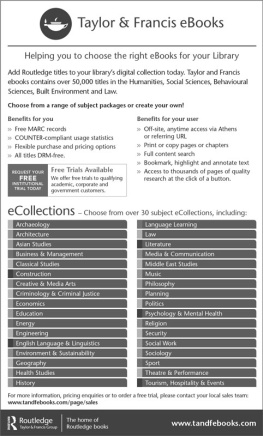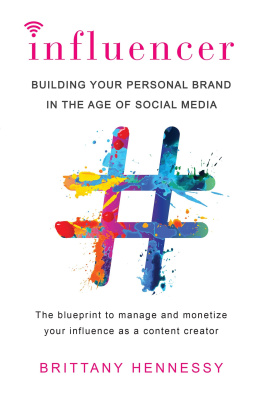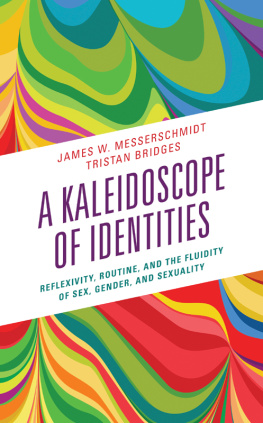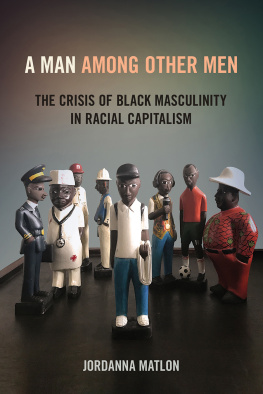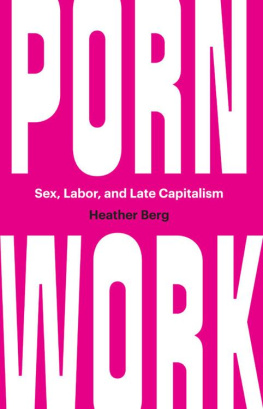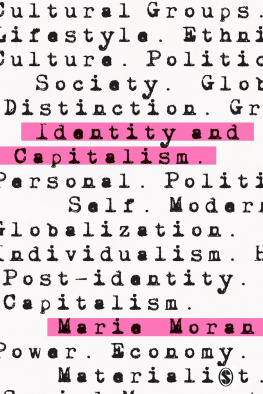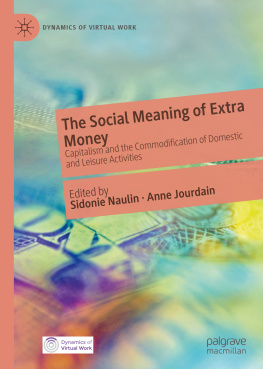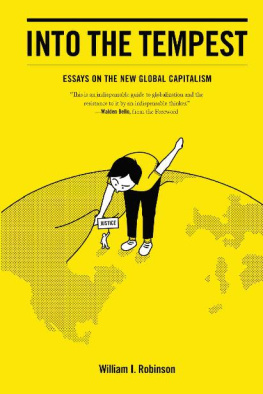PROFIT AND PLEASURE
Profit and Pleasure, Second Edition is a classic intervention into the relationship between capitalism and sexual identity. Rosemary Hennessy boldly reorients queer theory toward an up-close analysis of the structures of consumption, labor, and commodification, revealing how sexual identityin the varied ways it has been culturally differentiated and livedhas been fundamentally affected by these principles of capitalism.
In this second edition, a new introduction by the author reasserts a Marxist feminist standpoint as the most theoretically developed feminist analysis of capitalisms cultural logics. She presents a range of key conceptsamong them totality, overdetermination, social reproductionoutlining their evolution and continued relevance to analysis of sexuality since the books first publication in 2000. The introduction addresses important developments in materialist approaches to sexuality during the past two decades and concludes by returning to the notion of love as defined in the original edition, making a call for the common potential of human collaboration and action to ignite a radical sexual politics.
This seminal text will appeal to students and scholars of feminist studies, gay and lesbian studies, and cultural and literary studies.
Rosemary Hennessy is the L. H. Favrot Professor of Humanities and Professor of English at Rice University, USA. She is the author of Materialist Feminism and the Politics of Discourse and of Fires on the Border: The Passionate Politics of Labor Organizing on the Mexican Frontera. She is also Co-Editor of Materialist Feminism: A Reader in Class, Difference, and Womens Lives and of Nafta from Below.
Praise for the first edition of Profit and Pleasure
This book is a must. It focuses on a highly contested terrain: the production of desire. But it never falls into the trap of just following a fashion; unlike many other books, it wants to be useful to its readers, wants to give women more capacity of action by showing how to intervene into the conditions of their lives.
Frigga Haug, author of Female Sexualization and Beyond Female Masochism
A must-read. Hennessy gives us a brilliant new Marxist feminist analysis of the commodification of culture in global capitalism and the creation and management of sexual identities. Her historical approach uncovers problems not only with classical identity politics but also with postmodern queer theory and politics with incisive criticisms of Althusser, Williams, Butler and De Lauretis. Unlike some books which do not connect to practice, she sketches a radical collective politics that provides a plausible alternative to the theories she critiques.
Ann Ferguson, University of Massachusetts, USA
Hennessy demonstrates lucidly and persuasively the indispensability of the Marxist tradition both to an understanding of how sexuality is organized by the capitalist drive for profit and to the formulation of a radical sexual politics.
Barbara Foley, Rutgers University, USA, author of Radical Representations: Politics and Form in U.S. Proletarian Fiction, 19291941
Countering the localisms of contemporary queer theory with a materialist feminist analytic, Rosemary Hennessy offers the first book length statement on the political economy of homosexuality. Even readers resistant to her commitments and conclusions will find Profit and Pleasure a necessary tool in rethinking the intimacies between capitalism and sex.
Robyn Wiegman, Director, Womens Studies, University of California, Irvine, USA
Second edition published 2018
by Routledge
711 Third Avenue, New York, NY 10017
and by Routledge
2 Park Square, Milton Park, Abingdon, Oxon OX14 4RN
Routledge is an imprint of the Taylor & Francis Group, an informa business
2018 Rosemary Hennessy
The right of Rosemary Hennessy to be identified as author of this work has been asserted by her in accordance with sections 77 and 78 of the Copyright, Designs and Patents Act 1988.
All rights reserved. No part of this book may be reprinted or reproduced or utilised in any form or by any electronic, mechanical, or other means, now known or hereafter invented, including photocopying and recording, or in any information storage or retrieval system, without permission in writing from the publishers.
The publisher and author are grateful for permission to reprint portions of the following:
Chapter 4 from Queer Visibility in Commodity Culture, by Rosemary Hennessy. Cultural Critique 29 (Winter 19945) pp. 3176.
Chapter 5 from Ambivalence as Alibi: On the materiality of Late Capitalist Myth in The Crying Game and Cultural Theory, by Rosemary Hennessy. Genders 24 (Summer 1996) pp. 134.
Chapter 6 from Lesbisches Begehren im Spatkapitalismus: Queer-Klasse- Handlung. Das argument (Fall 1996).
Trademark notice: Product or corporate names may be trademarks or registered trademarks, and are used only for identification and explanation without intent to infringe.
First edition published by Routledge 2000
Library of Congress Cataloging-in-Publication Data
A catalog record for this book has been requested
ISBN: 978-1-138-28361-9 (hbk)
ISBN: 978-1-138-28362-6 (pbk)
ISBN: 978-1-315-27014-2 (ebk)
Si te quiero es porque sos
Mi amor, mi cmplice y todo,
Y en la calle codo a codo
Somos mucho ms que dos.
Mario Benedetti
This project was made possible because of the material support I received from many institutions and individuals. Grants from my unionUnited University Professionalsin 19992000 and from the University at Albanys Faculty Research and Development Program in 199899 and 199293 funded the resources I needed for reading and writing. Invitations from the University of Alabamas English Department, George Mason Universitys Cultural Studies Program, the Institute for Cultural and Literary Studies at Harvard University, the Center for Interdisciplinary Gender Studies at the University of Leeds, Queerzone in Sydney, Australia, Syracuse Universitys Womens Studies Program, the Volksuni in Berlin, and the University of Wollongong in Australia, allowed me to share and develop my ideas with activist and academic intellectuals internationally. I want to thank especially Rebecca Albury, Nirmale Erevelles, Corinna Genschel, Frigga and Wolfgang Haug, Stevi Jackson, Lynn Layton, Katrina Irving, Ben Maddison, Elizabeth Meese, Diane Murphy, Sasha Rosneil, and Robert Young for facilitating these opportunities and for the invaluable exchanges they made possible.
Sections of the book have been previously published, and I want to thank the editors of these journals and collections for the helpful comments they and their referees provided. was originally published in the journal Genders (24, Summer 1996). Parts of other chapters appeared in das argument, Hypatia, Rethinking Marxism, and Signs. My editors at RoutledgeNick Syrett, who first solicited the manuscript, and Amy Reading, who saw the project throughhave been wonderful, and I value a great deal their solid endorsement of my work.
I am indebted to the students in undergraduate and graduate courses I taught from 1993 to 1999 on postmodern and marxist theory, lesbian and gay studies, and queer theory at the University at Albany, SUNY. Their work always challenged my thinking and helped me to refine many of the arguments I present here. My exchanges throughout these years with two students in the doctoral program in English, Deborah Kelsh and Julie Torrant, have been particularly important. Several other colleagues have read all or parts of the book, sometimes going carefully over drafts and offering useful commentary. Among them are Cesare Casarino, Corinna Genschel, Richard Goldman, Frigga Haug, Stephanie Madnick, Sibyl McPherson, Vivien Ng, Nancy Ota, Steven Seidman, Laura Shore, Robyn Wiegman, and Donna Young.

